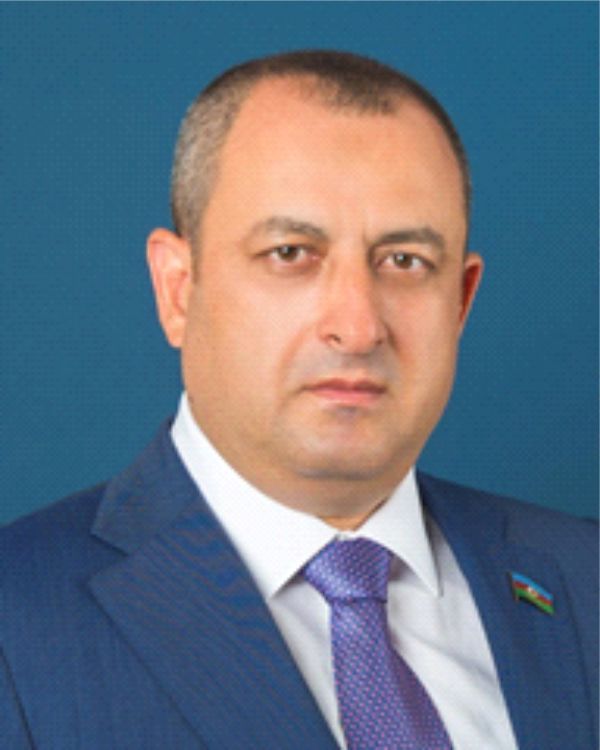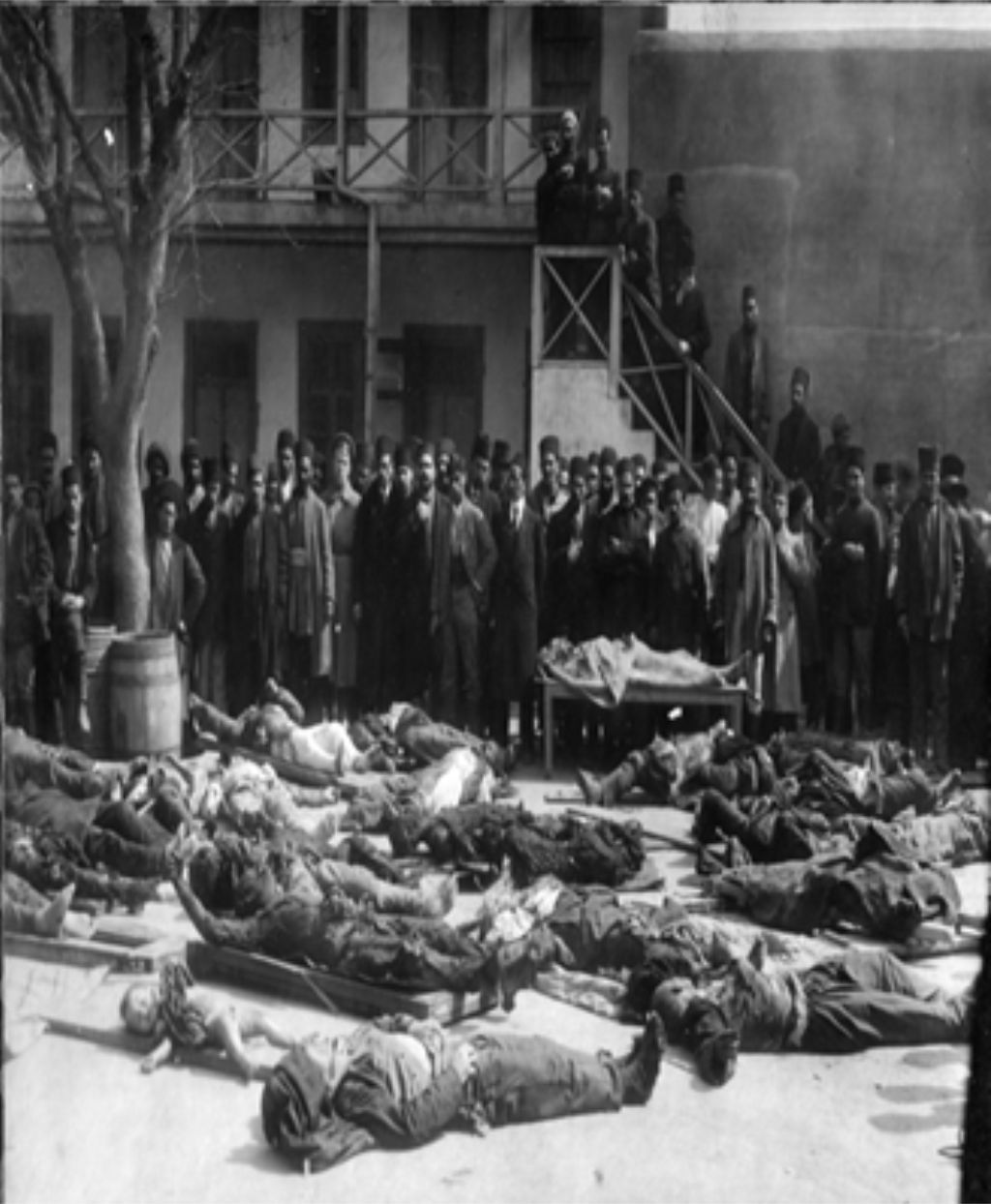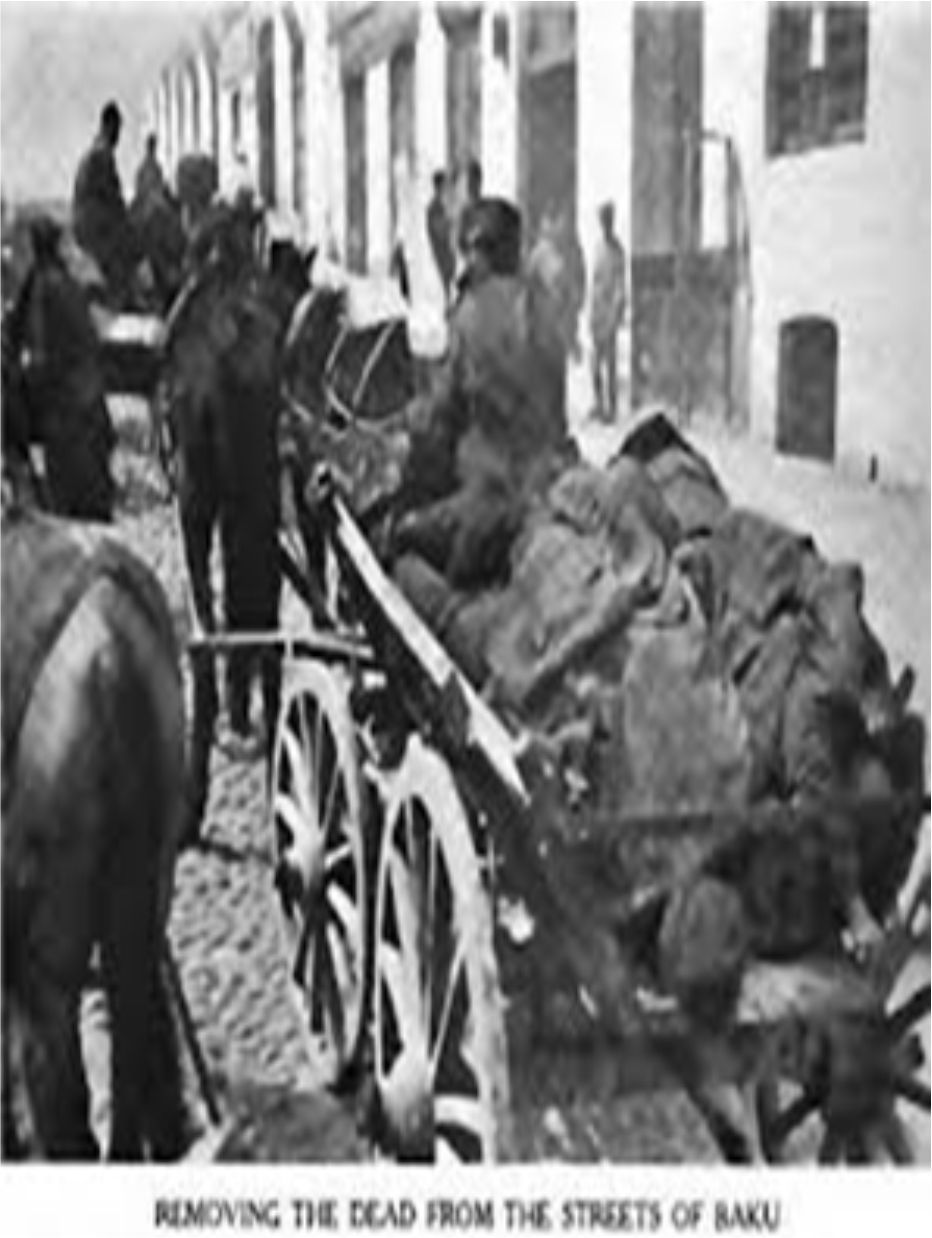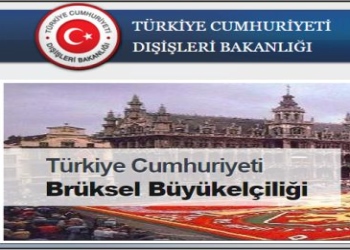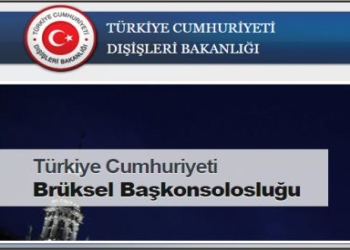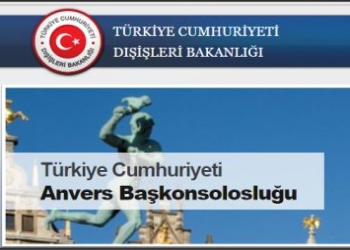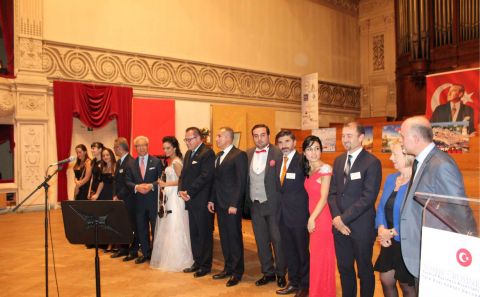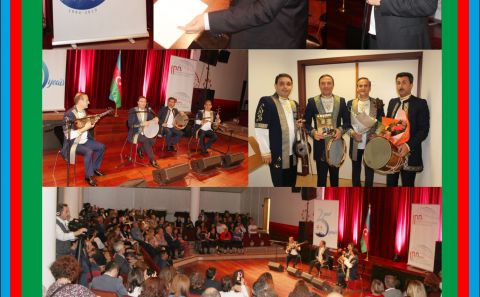March 31 - Day of Genocide of Azerbaijanis. Adil ALIYEV, Deputy Chairman of Milli Majlis of the Republic of Azerbaijan.
March 31 - Day of Genocide of Azerbaijanis. Adil ALIYEV, Deputy Chairman of Milli Majlis of the Republic of Azerbaijan.
~~It is pity that there were some genocides in our history. One of them is 31 March, which is known as the Day of Genocide of Azerbaijanis - as the "bloody massacre". It happened 31 March 1918, today passed 103 years. But all people feel it deeply, this genocide gives us big sorrow and fear.
Why were 50,000 Azerbaijani people killed by Armenian dashnak – bolshevik armed groups in 1918?
We want to be sure that who were victims of the tragedy. First of all, we know that approximately 50,000 civilian Azerbaijani people were killed only for their identity, citizenship, ethnic and religious affiliation. And the main reason that why they lived in Azerbaijan. We want to add this comment that, Azerbaijani have been living in Azerbaijan for many centuries and this land belong to Azerbaijani.
When we look at the history we come across many facts, so The Gulustan and Turkmenchay agreements signed in 1813 and 1828 provided the legal ground for the partition of the nation of Azerbaijan and the division of its historical lands. The occupation of our historical lands continued the national tragedy of us. Armenians moved to Yerevan, Nakhchivan, and Karabakh khanates where it was historical land of Azerbaijan. Armenians have achieved to establish their administrative-territorial unit of the Armenian region, and they start to residing Azerbaijanis in the same area. That’s why Armenian Dashnak nationalists started to make crime and massacres against in Azerbaijani 1905 and 1918 at the support of Imperial Russia and the Bolsheviks. They had a purpose that Azerbaijani left historical land.
At the begining of 1918 Armenian agressor started to make massacres against Azerbaijani. In the city of Baku and other towns and districts of the Baku Province by the Armenian dashnak-bolshevik armed groups killed thousands of Azerbaijani. The genocide carried out against the Azerbaijanis along with Baku also covered many other regions, including Shamakhi, Guba, Lankaran, Salyan, Iravan, Zangezur, Garabagh, and Nakhchivan.
During the first five months of 1918, more than 16,000 people were murdered with utmost cruelty in Guba province alone; a total of 167 villages were destroyed, 35 of which do not exist to this day.
Azerbaijan Democratic Republic (ADR) was established on 28 May 1918 and they ordered to investigate violence against the Azerbaijani population. The Council of Ministers on 15 July 1918 adopted a decision on the establishment of the Extraordinary Investigation Commission. Well-known lawyers of that time representing different nationalities -Russians, Jewish, Polish, Georgians, and even Armenians including the Commission. The commission comprised of based on the evidence launched criminal cases against 194 individuals accused of different crimes against the peaceful population, and, as a result , 24 individuals in Baku and about 100 individuals in the Shamakhi region had been arrested for perpetrated crimes.
We know that genocide is the biggest crime, because victims don’t have any blame. The UN General Assembly Resolution 96 (I) of December 11, 1946, states that genocide is the denial of the right to existence of entire human groups, as homicide is the denial of the right to live of individual human beings. That means that Armenian aggressors killed Azerbaijani - including their nationality, ethnic identity, etc.
UN General Assembly adopted Resolution 260 (III) of December 9, 1948, Convention on the Prevention and Punishment of the Crime of Genocide. Convention says that genocide means any act committed with intent to destroy, in whole or in part, a national, ethnic, racial, or religious group. Each of the acts, that were stated in this document, was committed by the Armenians against the Azerbaijanis during March-April 1918. It must be recognized as genocide under international humanitarian law norms and international law principles.
President of the Republic of Azerbaijan Heydar Aliyev signed the Decree on March 26, 1998, “On the genocide of Azerbaijanis” did those horrific events receive proper political recognition. March 31 was declared the Day of Genocide of Azerbaijanis. The Decree said: “All tragedies, which occurred in the 19th-20th centuries in Azerbaijan and were accompanied by the invasion of lands, constituted stages of the systematic genocide carried out by Armenians against Azerbaijanis. Attempts were made to give political recognition to only one of these tragedies – the March 1918 massacre. As a political successor of Azerbaijan Democratic Republic, the Republic of Azerbaijan recognizes its historical duty to get political recognition of the events of genocide, which the Azerbaijan Democratic Republic failed to complete during its tenure.”
















